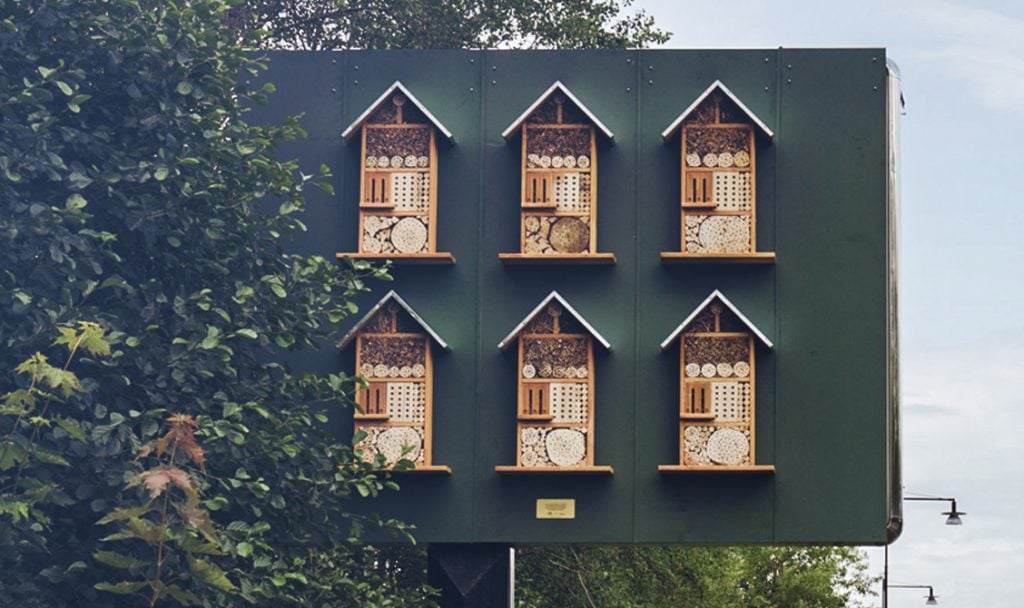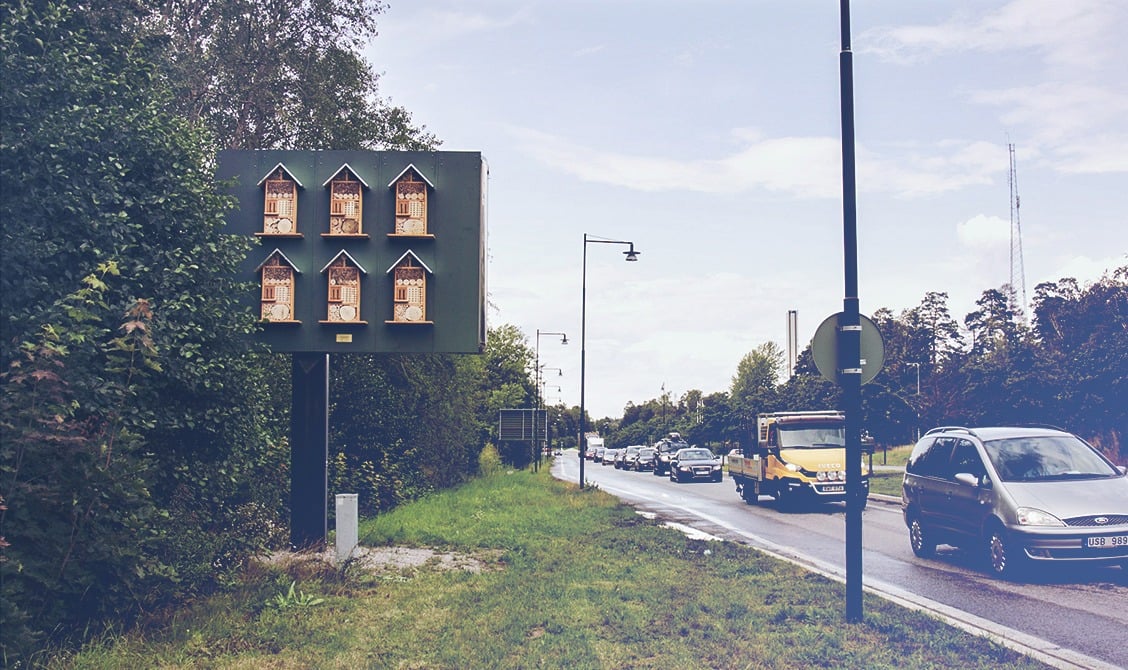McDonald's uses JCDecaux's advertising space to build nesting sites for wild bees
Without pollination from bees, 1/3 of the food we eat would be threatened. The fact that some McDonald's franchisees keep beehives on their restaurant roofs to promote biodiversity has been highlighted around the world.
The initiative is now being extended to include beehives for wild bees installed in JCDecaux's billboards.

It is estimated that 30 % of Sweden's wild bees are threatened. A major problem is that they lack places to live. That's why some McDonald's restaurants have replaced their usual big boards with ones with built-in beehives, where wild bees and other insects can crawl in and rest.
At the same time, McDonald's has launched a partnership with JCDecaux to to create nesting sites for wild bees on the backs of billboards that would not otherwise used. Bees thrive best when their nests are facing south. Billboards unused, south-facing backsides will instead be home to thousands of wild bees and insects. The first test is located in Järfälla and if it is successful the initiative may be scaled up in spring 2020.
- The survival of bees is an important issue for society as a whole. That we can use our signs for a good cause therefore feels very good. The initiative, which stems from our franchisees' personal commitment to has been made possible in partnership with JCDecaux and we are proud and happy soon to welcome our flying guests as they move into our hotels," says Henrik Nerell, Environmental Manager at McDonald's in Sweden.
Agency: NORD DDB
PR agency: Prime
Media agency: OMD
Media: JCDecaux
For more information, please contact JCDecaux's Head of Communications Malin Otterström.

Malin Otterström
PR and Communications Manager
073-976 26 94
[email protected]

